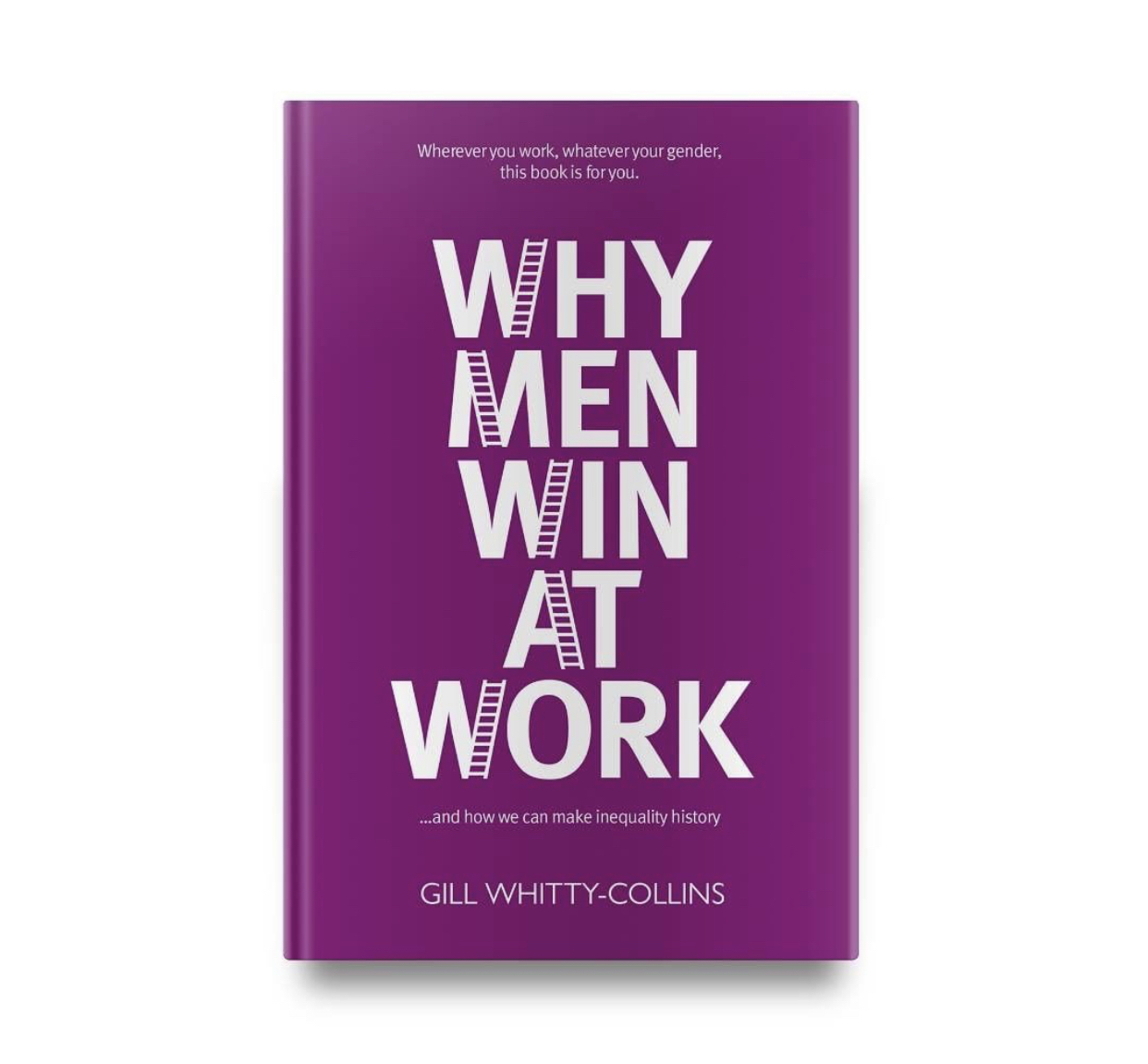I couldn’t have written this book seven years ago. I wouldn’t have even thought about writing it then. In fact, if someone had told me they were writing a book called Why Men Win at Work, I would have had no interest in it at all. If I had ever thought about it, I would have disagreed with the premise and maybe (probably) have got into an argument about it.
As the father of three girls, perhaps my poor dad had no choice but to believe in supporting girls and women because he was surrounded by us. To his huge credit, he embraced feminism and from as early as I can remember he never made us feel like we should do anything else but use our brains and work hard at school, get into a good university and get a good job that exercised our minds. Sadly, I did have girlfriends at school whose fathers didn’t see girls the same way and parked all their paternal academic and career ambition with their sons. Not my dad though. It also helped that I went to mixed schools where, thanks to a combination of hard work, sufficient intelligence and being famously well organised, I was usually top of the class or close to it. It really never occurred to me to question whether I was as good as or equal to a man. Nor did my time at the University of Cambridge give me any cause to ask gender inequality questions – I was a pretty average student there overall but was privileged to come across some truly brilliant minds which came in both the male and female form. Then it was on to a career at a big international company, where for the first 18 years I would have told you that, while of course I was aware of gender diversity issues, I had personally never been on the wrong end of them. I had never felt in any way held back as a woman and, to be honest, I didn’t understand why people made an issue of it. I am rather ashamed to admit that I used to be one of those women who was rather arrogant and dismissive of women who talked about gender inequality, and believed the issue was that they were perhaps not strong enough and should ‘man up’ – or should I say, ‘woman up’.
And then I saw it. And once I had seen it, I saw it everywhere. Not the old-school ‘bum tap in the photocopy room’ kind. (Although I know this does still happen, along with its sinister digital age evolution of instant messenger stalking.) No, what I became aware of was the invisible kind. The unconscious kind of gender discrimination that is so embedded in our psyches that even good men with good intentions participate in and contribute to, men who would count themselves as unconditional believers in equality. The kind that is so unconscious and in-visible that even women themselves sometimes don’t see it happening and, even worse, contribute to it themselves. The kind that ultimately defeated me, when so many other barriers along the way had not – and has defeated, is defeating and will defeat many women in their careers if we continue to allow it to. The kind that is the real, underlying reason why women struggle to succeed and are so under-represented at the top levels in business and society.
And so now I have personally seen and understood it, I am livid, and I need to talk about it and do something about it. Why are men still winning at work? Why do we accept that we are living in a man’s world where over 90% of all leadership positions in society and business are held by men and no progress is being made? We have seen that even a global pandemic couldn’t shift us on gender equality – when I began writing this book a year ago it was clear we were stuck and since then we have even gone into reverse, thanks to Covid-19. Women have taken on even more of the burden of housework and childcare to the detriment of their careers and face a ‘Not now dear’ response to any attempt at equality or diversity discussions because this is not seen as a priority in a crisis. Yes, I am livid and I have decided to talk about it, even though I know how unwelcome and resisted this subject can be by both men and women. I am talking about it because if we don’t keep raising the issue and fighting it, the unconscious system will keep on running in its unconscious way and we will still be here, in the same place, in 100 years. Brilliant women will still be under-leveraged and will not attain the positions in business and in society that should be theirs. We simply cannot let this happen.
Do I think gender inequality at work is the biggest problem we have in the world today? No – it’s not even the biggest problem women have, and it won’t be as long as some women are being physically or sexually abused anywhere in the world. When one in three women will be raped or beaten in her lifetime and women around the world are subjected to forced marriage, stoning, trafficking, female genital mutilation, acid attacks, ‘honour’ killings, slavery and servitude, gender inequality at work is a ‘first world feminist problem’ by comparison. These are much more important issues than the ‘luxury gender issues’ I will focus on, and these must be fought by every decent human being wherever they exist. This book isn’t about the hideous sexism or obvious sexism that everyone can see, which has been well covered by others. It is not about the awful things that the very small minority of men who are predators or misogynists consciously do to control and manipulate women. It is about the invisible and unwitting things that men do that may not come from bad intentions but that do have significant negative consequences.
********
It’s incredible really, isn’t it, when you really think about it? We have all these brilliant women not being leveraged by their companies and organisations, despite the best women being good as the best men – and despite all the improvements that diversity would make to their performance, their businesses, their organisations, their countries, their lives. How can we keep letting this happen? How can women go on accepting this as ‘just the way it is’ and watch as our lives and world are run by men?
********
Addressing this issue will help us all (not just the 50% of us that are women) in such far reaching ways. It will make our businesses perform better, our homes happier, our countries stronger. Once we see how powerful we can be when we leverage different ways of seeing and doing things, we will move forwards in all areas of diversity. We will stop wanting a male or white or heterosexual dominant culture because we will finally understand its limits. We will stop wanting one type of person to win at work because we will know this means we are not fielding the best team and that we are not as strong as we could be.



